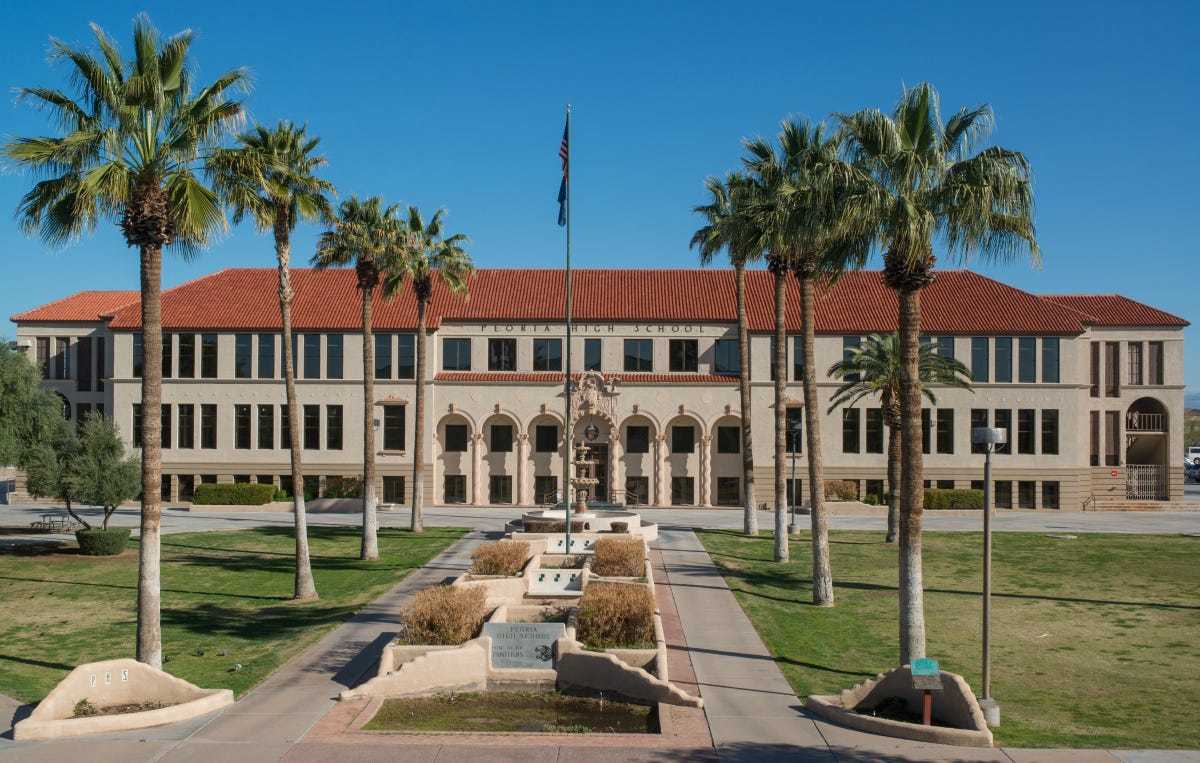Peoria school board rejects free computer science program that has commitment to diversity

The Peoria Unified School District governing board rejected a free computer science training program because of concerns that its website mentions "diversity, equity and inclusion" and that the program serves groups historically excluded from learning computer science.
The motion to approve the memorandum of understanding with the Microsoft Philanthropies Technology Education and Learning Support program failed with a 2-2 vote during Thursday's governing board meeting. Board members Heather Rooks and Rebecca Hill voted against the memorandum of understanding, and Melissa Ewing and Bill Sorensen voted for it. David Sandoval, the board's president, was absent from the meeting.
Sandoval can ask for the item to be reconsidered at a future meeting since he was not present to vote, according to district spokesperson Danielle Airey.
The Microsoft Philanthropies program would have paired trained computer science professionals with classroom teachers at three schools in the district — Raymond S. Kellis High School, Centennial High School and the MET Professional Academy — to team-teach computer science. According to the program's website, it served more than 14,000 students in more than 550 high schools across eight countries during the 2022-23 school year.
The yearlong program, which would have been new to the district, was intended to increase access to computer science education in Peoria Unified, according to the memorandum of understanding.
"They work with our classroom teachers on specific areas such as computational thinking and problem-solving skills by team teaching," said Teresa Hernandez, the district's chief academic support officer, during the meeting.
"This provides the opportunity to grow the knowledge of our existing computer science teachers as well as supporting continuing instruction for our students," she said. "There is no cost to the district to bring this program to us."
The item was originally on the consent agenda, a grouping of routine business that gets voted on all at once. It was pulled from the consent agenda because there were requests for public comment on the item. Two people commented in opposition to the program, including Tiffany Benson, a special projects administrator with Turning Point USA, the conservative national youth organization.
Board member Rooks acknowledged a shortage of computer science teachers in the district and that "this program does work in bringing in those key areas of instructors, or those people who are trained in that area in the classroom."
But Rooks said she had reservations about the Microsoft Philanthropies program because its website states that "diversity, equity, and inclusion are core tenets" of the program and "there is a statement from Microsoft for their commitment to address racial injustice."
Hill said that "there is no place" in the district for the Microsoft Philanthropies program, which she said is "basically stating that we're not actually providing equal opportunity to every single student."
"It does not make sense to me," she said. "Everyone gets an equal opportunity if they have interest in computer science, and if you don't, maybe that's not your skill set or your God-given talent."
"The affirmative action that was actually just stipulated with the Supreme Court recently does make me ponder if this is even valid," Hill said about using the Microsoft Philanthropies program. On June 29, the U.S. Supreme Court ruled that race-conscious college admissions policies are unlawful.
The district's chief financial officer, Michelle Myers, told the board that legal counsel reviewed and approved the memorandum of understanding.
Board members Sorensen and Ewing spoke in support of the program.
"I definitely advocate for our kids learning computer science," Sorensen said. "We need to teach our kids how to think in this arena that is the future."
Ewing said the program is "a great opportunity for our teachers to be working with professionals in the field."
"Computer science is changing so rapidly, anything we can do to make sure that our teachers are skilled and trained — top-notch — to prepare our students so that they’re ready as soon as they leave high school to be skilled in computer science," Ewing said.
Controversial: Peoria school board members quote Bible at board meeting despite warning and legal advice
Madeleine Parrish covers K-12 education. Reach her at mparrish@arizonarepublic.com and follow her on Twitter at @maddieparrish61.
This article originally appeared on Arizona Republic: Peoria Unified rejects free computer science program over diversity

